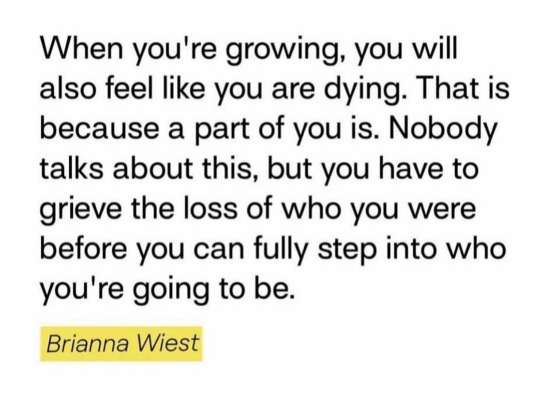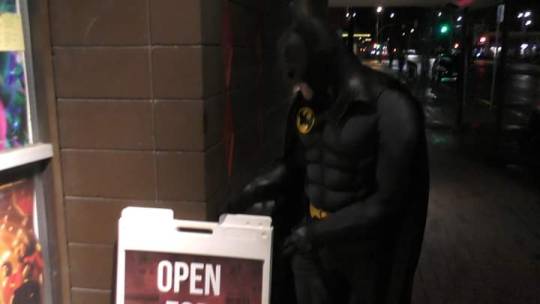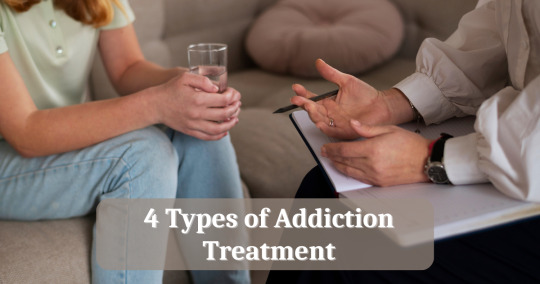#Addiction treatment
Explore tagged Tumblr posts
Text
Ontario tabled a bill Monday that aims to shutter 10 supervised consumption sites the government deems too close to schools and daycares.
The bill, if passed by Premier Doug Ford's majority Progressive Conservative government, would also require municipalities to get the health minister's approval to apply for an exemption from the federal government to launch new supervised consumption sites.
Health Minister Sylvia Jones said there is no situation in which she would approve a new one anywhere in the province.
"I want to be very clear, there will be no further safe injection sites in the province of Ontario under our government," Jones said at a news conference about the bill. [...]
Ontario is shifting away from harm reduction to an abstinence-based model and it intends to launch 19 new "homelessness and addiction recovery treatment hubs" — or HART hubs, as the province calls them — plus 375 highly supportive housing units at a planned cost of $378 million.
Continue Reading.
Tagging: @newsfromstolenland, @vague-humanoid
#cdnpoli#Ontario#drug abuse#addiction#addiction treatment#Conservatives#Progressive Conservatives#this is very bad fyi
153 notes
·
View notes
Text

#addiction recovery#addiction#healing#alcoholism#sobriety#drug abuse#addiction treatment#motivational quotes#life quotes#sober
1K notes
·
View notes
Text




























Surviving the Holidays in Recovery: A Guided Workbook for Self-Reflection, Relapse Prevention, and Emotional Resilience, Addiction recovery https://deelitefulrecovery.etsy.com/listing/1806322154/surviving-the-holidays-in-recovery-a . . . . . . . . . . #HolidayRecovery #soberholidays #addictionworkbook #relapseprevention #recoveryworkbook #SoberCommunity #sobriety #HolidayStressRelief #addictionjournal #soberlivingstyle #mentalhealth #therapistworksheets #addictioncounselor #peersupport
#recovery#addiction recovery#12 steps#narcotics anonymous#sobriety#alcoholics anonymous#we do recover#etsy seller#etsysmallbusiness#mental health#therapistworksheet#peersupport#addiction counseling#addiction treatment#addiction#rehabilitation#addiction awareness#relapseprevention
3 notes
·
View notes
Text
Thanks to @gardening-tea-lesbian for posting about this and bringing it to my attention!
--
The Biden-Harris Administration wants to make substance abuse treatment more accessible for all prisoners in the U.S. Addiction is common among people in prison, and treatment helps fight recidivism and reduce overdose rates.
From Federal Prisons To State Prisons
By this summer, all federal prisons will offer addiction treatment, Dr. Rahul Gupta, director of the White House Office of National Drug Control Policy, said last week.
Federal officials want states to follow suit. Starting this spring, Medicaid funds will be set aside for states to use in their own jails and prisons to provide mental health services, including SUD treatment.
Approximately 25% of all Americans received Medicaid benefits in 2022. For people with low incomes, Medicaid is the largest provider of funds for healthcare services.
The Biden-Harris Administration has shown a commitment to helping underserved communities receive addiction prevention, treatment, and recovery services.
This includes services for rural populations and Tribal populations along with people who are incarcerated.
Addiction In Our Prisons
It’s hard to know precisely how many incarcerated people have an SUD, but the National Institute on Drug Abuse (NIDA) estimates that about 65% of all inmates do.
NIDA estimates that another 20%, who didn’t meet the official criteria for an SUD, were under the influence of drugs or alcohol when they committed a crime.
Overall in America, about 40 million people ages 13 and over are living with addiction, or about 12% of the population, according to the 2020 National Survey on Drug Use and Health.
How Treatment Helps Prison Populations
Drug abuse treatment is effective. For people in prison, receiving treatment can mean the difference between staying out of jail once released or returning behind bars.
It can also provide them with the mental clarity and tools to meet the challenges of life, improve their mental health, and succeed in their relationships and work.
Aids Long-Term Recovery
The Biden-Harris Administration is focusing on evidence-based treatment methods to help people who are incarcerated get and stay on the path to addiction recovery.
This includes medication-assisted treatment (MAT), which combines the use of medications like buprenorphine with behavioral therapy to treat opioid abuse.
Buprenorphine, the first medication that could be prescribed by physicians to treat opioid use disorders, helps people overcome addiction in a few ways.
Using buprenorphine helps with recovery by:
reducing cravings
diminishing opioid withdrawal symptoms, which include flu-like symptoms and severe anxiety
improving safety, if overdose occurs
lessening the chance of misuse
One study in support of buprenorphine’s effectiveness showed that participants receiving the medication were almost twice as likely to remain in treatment and not relapse.
Prevents Overdose Deaths
According to U.S. News and World Report, the leading cause of death among people newly released from prison is drug overdose.
This is partly due to the fact that their tolerance levels decrease while incarcerated, so they aren’t able to tolerate the same amount of the drug as before they were in prison.
The buprenorphine study mentioned above also revealed that people not receiving the treatment had a 20% mortality rate."
-via Addiction Resources.net, 3/9/23
#addiction#cw drug use#cw addiction#addiction treatment#mass incarceration#medicaid#united states#us politics#prison reform#prison industrial complex#biden#kamala harris#evidence based medicine#healthcare access#opiod crisis#opiod epidemic#buprenorphine#drug treatment#good news#hope#voting matters
54 notes
·
View notes
Text
Esoteric Christianity focuses on the hidden or spiritual meanings behind the teachings of Jesus, the Bible, and Christian symbols. While traditional Christianity emphasizes faith, communal worship, and outward expression, Esoteric Christianity invites believers to explore the inner spiritual journey.
1. Inner Christ: The idea that Christ’s spirit lives within each person and that spiritual awakening involves realizing this inner divine presence.
2. Mystical Knowledge: A belief that deeper truths are accessible through meditation, prayer, and spiritual discipline.
3. Symbolism: Biblical stories and teachings are often viewed as metaphors for inner spiritual truths.
How to Approach Esoteric Christianity
1. Start with Scripture
Begin by reading the Bible, particularly the teachings of Jesus, through a contemplative lens. Reflect on passages such as:
“The kingdom of God is within you” (Luke 17:21)
“I am the way, the truth, and the life” (John 14:6)
Consider how these verses may point to inner transformation and spiritual union with God.
2. Study Early Christian Mystics
Explore writings by early Christian mystics and theologians, such as:
St. John of the Cross: Wrote about the “dark night of the soul,” a spiritual journey toward divine union.
Meister Eckhart: Focused on the soul’s direct connection to God.
3. Practice Contemplation and Meditation
Esoteric Christianity often involves meditative prayer practices like:
Lectio Divina: A slow, meditative reading of scripture.
Centering Prayer: Focusing inward to quiet the mind and open the heart to God’s presence.
4. Understand the Symbolism
Reflect on the symbolic meaning of Christian practices and teachings:
The cross symbolizes the death of the ego and rebirth in Christ.
The resurrection represents spiritual awakening and transformation.
Parables contain deeper moral and spiritual lessons about the soul’s journey.
5. Seek Community and Guidance
While esoteric study often emphasizes personal growth, community can help. Look for Christian groups interested in contemplative practices or spiritual growth, or read modern interpretations by thinkers like Richard Rohr and Cynthia Bourgeault.
Esoteric Christianity is not a replacement for traditional faith but a complement to it. Its depth can sometimes lead to:
Over-intellectualization: Getting lost in theories rather than living out faith.
Isolation: Esoteric paths may feel solitary, but they should deepen, not replace, your connection to Christian community.
Misinterpretation: Always ground mystical insights in the love and teachings of Christ.
Why It Matters
Esoteric Christianity invites believers to go beyond surface understanding and cultivate a deeply personal relationship with God. By engaging with scripture, symbols, and spiritual disciplines, we discover a God who is not only transcendent but also immanent—dwelling within us and inviting us into divine union.
As you explore Esoteric Christianity, remember that the ultimate goal is love: love for God, others, and yourself. This journey is not about secret knowledge or elitism but about living in the light of Christ’s transformative power.
Are you ready to go deeper? Start with a quiet moment today, and listen for the whisper of the Spirit within.
#esoteric#Christianity#follow jesus#jesus is coming#addiction recovery#rehabilitation#addiction treatment#the holy spirit#lord jesus christ#praying#prayer#substance abuse#i love jesus#jesus christ#faith in jesus#belief in god#belief in jesus#keep the faith#faith#love#but the greatest of these is love.
4 notes
·
View notes
Text

South Meadows Recovery stands together in support of Breast Cancer Awareness. 💖 Our team proudly wore pink to show our commitment to this important cause. Join us in raising awareness and supporting those affected by breast cancer. 🎗️ #BreastCancerAwareness #SouthMeadowsRecovery www.southmeadowsrecovery.com
#addiction recovery#addiction counseling#addiction rehab#addiction treatment#addiction medicine#addiction#recovery
2 notes
·
View notes
Text
How Much Does Inpatient Rehab Cost?
If you or a family member is looking into inpatient rehab, one of your main concerns might be the cost. Rehab costs vary widely based on the facility, the length of stay, and the services offered. Below is a breakdown of what you can expect based on different types of rehab centers:
Basic Inpatient Rehab
Basic inpatient rehab centers typically include standard treatment programs. Shared rooms and fewer luxuries are usually included here. Such programs are formulated with the minimal essentials to support recovery, rather than featuring added comforts. Such programs cost between $2,000 and $20,000 per month.
Mid-Range Inpatient Rehab
Mid-range rehab centers will offer a much more customized approach to treatment. They will typically include some form of individual therapy sessions and upgraded accommodations. This way, you receive a better level of care within a relatively affordable budget. Normally, a mid-range inpatient rehab option falls within the $10,000 to $30,000 per month price range.
Luxury Inpatient Rehab
Luxury inpatient rehabs are the top-tier institutions that offer personal quarters, good dining services, and special privileges such as spa treatments and access to personal trainers and calming views of nature. Luxury services do not come cheap and can cost as much as $30,000 to over $100,000 per month.

Factors Influencing Cost
Another factor that determines the total cost of rehabilitation is the duration of your stay. Most rehabilitation programs are 30 to 90 days long, but some may require longer stays depending on one's condition and goals for recovery.
Insurance and Financial Assistance
Most plans offer coverage for some kind of rehab, but the coverage is case-by-case, determined by what your plan is and if the place you want to go has a network affiliation. Be sure to call your insurance provider to know what their policies are and if that rehab center accepts your type of insurance.
The best rehab facilities offer sliding scale fees or financial aid based on the recipient's income and need for it, especially if they are uninsured or experiencing economic hardship. Ask the rehab center for a payment plan or any financial aid available.
Conclusion
Inpatient rehab charges may range from a few thousand dollars to over 100,000 dollars per month, all being dependent on the level of care and treatment amenities, but most of these are covered by insurance. It is always important to check this information before entering the program so that one will be aware of the resources that could be accessed in helping one afford the costs of such a facility.

#Inpatient Rehab#Rehab Costs#Addiction Treatment#Substance Abuse#Health Insurance#Treatment Options#Mental Health#Recovery#Financial Assistance#Rehab Facilities#Cost of Care#Support Resources
2 notes
·
View notes
Text
I made a choice not to drink today. It's the same choice I've been making every day for the better part of a year now. My sobriety date is June 30, the day I entered detox at the place I would wind up staying six weeks for rehab, & while I made the choice to agree to go there, & then to stay, I don't think I really bought into the idea that I was choosing not to drink for the first week or two. They're pretty careful about making sure substances don't get in, & alcohol is a particularly tricky one to smuggle in, 'cuz volume & weight, so it's not like I could have used while I was there, really. But they also weren't forcing me to stay. I could have AMAed, or broken enough rules to get myself bounced. There would have been consequences, but I had the choice, & I chose to stay. I'm really grateful I did, because by the end of Week Two, I'd decided that recovery was something I wanted, & I was in the right place to find it.
Recovery is still something I want, every single day. Recovery is the most precious thing I have. And it's not just sobriety. The path to sobriety, for me, was a walk through lots of hard looks at the way people have treated me, with & without various levels of consent (you could argue that the levels of consent are 1: Clear Consent, & 2: Non-Consent, & I wouldn't fight you on it; for me right now, there are many shades of gray). I didn't just leave rehab sober, I left it loving myself & willing to fight for myself, which has been a real adjustment for some people. I left rehab feeling like I mattered; I left knowing what it meant to be safe. I left rehab with a willingness to change my mind, with a desire to understand more, with an openness to loving God/s.
I chose not to drink today, & it feels so good I could almost cry. Thank you, Mountainside. I will always love you for the gift you gave to me ❤️🐦🙏🪷🕉️
2 notes
·
View notes
Text
Today at work, I walked my patient to the outpatient building across the building where I work for his weekly check in.
I told him to keep up the good work and to call me if he needs any resources or if he wants to stop by tomorrow to register for local housing programs. We said our goodbyes and I started walking back to my department's office building.
On my way back, I noticed a woman leaning against the outpatient wall, crying as she was on the phone. I assume she was a patient at my work.
I listened to her conversation. She was talking to her dad and told him he is all she has left, that she has no where else to go.
My heart broke and I wanted to turn around and comfort her but I didn't. I noticed my movement slow down as my steps moved forward. I had to get back to the office and finish my work but she was on my mind for the rest of my shift.
4 notes
·
View notes
Text
Pledges from both the B.C. NDP and Conservative Party of B.C. to expand the use of forced treatment for people with addictions or severe mental health issues is being met with pushback from some residents of B.C. — as well as Canada's federal addictions minister. On Friday, people living in Prince George — one of the cities hardest-hit by the illicit drug overdose crisis — held a rally on the steps of the Prince George courthouse, urging political leaders to work first on expanding options for voluntary treatment across B.C. rather than focusing on compulsory care. "We need free treatment beds. We need rapid access to detox and no wait list," said one of the rally's organizers, Corrine Woods. A member of Moms Stop the Harm, she said she lost her own son to an overdose in 2018 and knew first-hand the difficulty of accessing care.
Continue Reading
Tagging: @newsfromstolenland
#tw drugs#addiction#addictions#prince george#overdose prevention#harm reduction#addiction treatment#bc election#conservative party#ndp#british columbia#cdnpoli#canadian politics#canadian news#canada
44 notes
·
View notes
Text

#addiction recovery#addiction#healing#alcoholism#sobriety#drug abuse#addiction treatment#life quotes#motivational quotes#sober
374 notes
·
View notes
Text
Preventing Burnout and Relapse - Self-Care Strategies for Addiction Counselors, Therapists, Recovery Coaches and Peer Support Specialists https://deelitefulrecovery.etsy.com/listing/1780938681/preventing-burnout-and-relapse-self-care #burnoutprevention, #relapseprevention, #addictioncounseling, #selfcareforprofessionals, #therapistsupport, #recoverycoaches, #mentalhealthmatters, #ProfessionalWellness, #worklifebalance, #stressmanagement, #peersupport, #counselorlife, #therapistlife, #cbttraining, #addictionrecoverytreatment, #preventburnout, #wellnessinrecovery, #TherapistTools, #CounselorSupport, #recoveryjourney, #addictionprofessionals, #WellnessAtWork, #TherapistSelfCare, #healthyboundaries, #preventrelapse #ProfessionalGrowth, #therapistwellness, #recoverysupport, #burnoutrecovery, #mindfultherapist
#addiction recovery#12 steps#sobriety#addiction counseling#addiction treatment#counseling#peer support#recovery journey#recovery is possible#recoverysupport#12 step recovery#recovery#self acceptance#mental wellness#therapy#burnout#professionaldevelopment#professionalgrowth
2 notes
·
View notes
Text
Terrace Batman retrieves theatres stolen sign while out on patrol.




I spent a few hours this past Friday, standing guard outside Tillicum Twin Theatre in Terrace BC. I had watched the recent city council meeting and listened as the manager of the theatre described all the issues she and her staff were facing due to crime. I decided to experience firsthand what was happening. I had to deal with 3 people, very high on drugs, in the act of commiting crimes, as I was outside the theatre over the course of 3 hours.
#i'm batman#batman#bruce wayne#dc batman#batman 89#terrace bc#british columbia#bc news#bc politics#crime#addiction awareness#addiction treatment#help#canada news#treatment options#community support
6 notes
·
View notes
Text
Real Talk: Cannabis, Self-Medication, and Substance Abuse
Let's get real about the dangers of self-medication for mental health relief. From cannabis to microdosing, we'll discuss the nuanced path to wellness and the need for comprehensive support.
Marijuana: a “Safe Substance” Amidst the evolving landscape of mental health awareness, the concept of self-medication has emerged as a growing phenomenon, shedding light on the increasing tendency of those of us who are struggling to turn to substances for relief from emotional burdens. I’ve lived in the Mile-High State for ten years now, and I moved here just shortly after Colorado became the…

View On WordPress
#addiction#addiction recovery#addiction treatment#adhd#alcohol use disorder#autism#california sober#cannabinoid hyperemesis syndrome#cannabis#cannabis use disorder#chs#hallucinogens#healing#healthy habits#lsd#medication#mental health#mental illness#microdosing#mushrooms#neurodivergent#psilocybin#recovery#sober#substance abuse#therapy#trauma#weed#Wellness
3 notes
·
View notes
Text
4 Types of Addiction Treatment What’s the Difference
Recovery from addiction is possible with the correct approach! 💯
Check out our most recent blog, in which we discuss four types of addiction therapy. 💊
Learn how each approach works, as well as its distinct benefits and considerations, to help you make a smart choice on the best treatment option for your recovery journey.💫
Take the first step towards a happier, healthier lifestyle. 😊

#recovering addict#addiction#addiction treatment#recovery#treatmentoptions#addiction help#mental health matters#recoveryjourney
2 notes
·
View notes
Text
The Relationship Between Porn Addiction and Substance Abuse

The relationship between porn addiction and substance abuse is a topic of debate among researchers and professionals. While some studies suggest a correlation, others argue there is no direct link. Both porn addiction and substance abuse affect the brain's reward system, leading to compulsive behaviors and reduced pleasure from other activities. Porn addiction involves excessive use of pornography despite negative consequences, while substance abuse involves excessive use of drugs or alcohol. Common symptoms of porn addiction include continued use despite negative effects, difficulty in relationships, and inability to control or stop use. The relationship between drug addiction and porn addiction is believed to stem from the activation of the brain's reward system. Individuals with substance abuse problems may be more prone to developing a porn addiction, and vice versa. Both addictions can negatively impact various aspects of life and may be used as coping mechanisms. Overall, comprehensive support is necessary for individuals dealing with both types of addiction to successfully recover. To learn more, please visit https://betteraddictioncare.com/blog/the-relationship-between-porn-addiction-and-substance-abuse/.
2 notes
·
View notes